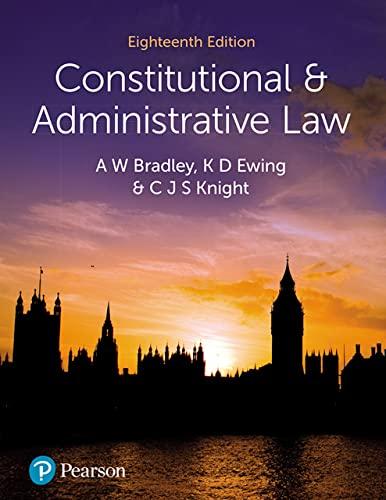Question
Due to a post covid tourism boom in the EU, directive 2020/123 was introduced to encourage those working in the tourist industry to enhance their
Due to a post covid tourism boom in the EU, directive 2020/123 was introduced to encourage those working in the tourist industry to enhance their hospitality skills.
Art 1 (1) of the directive provides that:
'Member States must provide both a hospitality skills programme for junior restaurant or hotel staff, leading to an internationally recognised qualification and a one-off cash payment of 3000 Euro. Staff wishing to undertake this course must provide proof of continuous employment in the industry for three years or more.'
Alpha, a French national, has been working continuously in a government run hotel for three years and one month. His application to enrol on the programme in France has just been refused and he was told that under French national law implementing the directive, the programme is reserved for senior staff only and that to qualify, he must have ten years relevant work experience. This is because there would be too many applicants for places on such programmes in France, which has a huge hospitality industry. To implement the directive fully would make the scheme too expensive.
Guy is concerned that he is missing out on both potential opportunities, as he has not been able to obtain either the qualification or the one-off cash payment.
Advise how Guy on his rights under EU law, using the principle of direct effect.
How might the Commission of the European Union assist in the enforcement process?
Step by Step Solution
There are 3 Steps involved in it
Step: 1

Get Instant Access to Expert-Tailored Solutions
See step-by-step solutions with expert insights and AI powered tools for academic success
Step: 2

Step: 3

Ace Your Homework with AI
Get the answers you need in no time with our AI-driven, step-by-step assistance
Get Started


